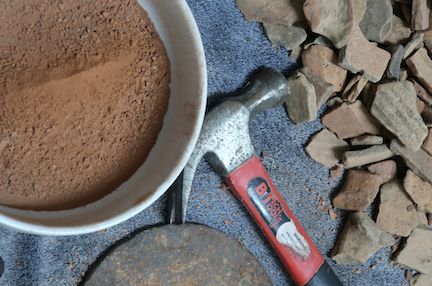When Ice Bergs Come Crashing
The world’s largest iceberg has run aground in shallow waters off the remote island of South Georgia, home to millions of penguins and seals. The iceberg, which is about 1,250 square miles wide and 985 feet tall, appears to be stuck. The saga of the stranding of this iceberg is the culmination of a40-years long story that started when it first broke off the Filchner-Ronne Ice Shelf of Antarctica in 1986.

Experts expect it to start breaking up on the island’s southwest shores, since the tides will now be lifting the iceberg up and down. That will grind the iceberg backwards and forwards, eroding the ice.
Where the iceberg is touching the ice shelf where it is stuck, there are thousands of tiny creatures like coral, sea slugs, and sponge. Their entire universe is being bulldozed by a massive slab of ice scraping along the sea floor. That is catastrophic in the short-term for these species, but they say that it is a natural part of the life cycle in the region. Fishermen fear they will be forced to battle with vast chunks of ice. It could also affect the macaroni penguins feeding in the area.
“Where it is destroying in one place, it’s providing nutrients and food in other places.”
While the macaroni penguins who forage on the shelf where the iceberg is stuck could be affected, scientists in Antarctica say that huge amounts of nutrients are locked inside the ice, and that as it melts, it will create an explosion of new life in the ocean.
“It’s like dropping a nutrient bomb into the middle of an empty desert,” says Professor Nadine Johnston from the British Antarctic Survey. “Without ice, we wouldn’t have these ecosystems. They are some of the most productive in the world, supporting a huge number of species and individual animals, and feeding the biggest animals in the world like the blue whale.” says Professor Huw Griffiths.

Sometimes, what looks like catastrophe, wreckage, destruction on the outside, is really full of blessing on the inside. Rather than fighting the icebergs that come crashing into the shoreline of your life, patiently wait for them to grind away until the richness that lies within the hardship and trial is revealed, creating an explosion of new life.
To ignore the refining work of the grinding trials of life would be unfaithful. It would also be unhealthy. However, we are to process what we experience through the filter of God’s Word and God’s character. That helps us, like the scientists and ecologists, to see that once everything breaks up, there will be blessings for those who are the Lord’s people.
As the Scriptures reveal, while others (or even trials) seem to be intent upon harming us, "... but God intend[s] it for good to accomplish what is now being done, the saving of many lives" (Genesis 50:20, NIV). "And we know that God works all things together for the good of those who love Him, who are called according to His purpose" (Romans 8:28, NIV).
Broken Pieces Make Good Grog
Ceramic pottery has been used for thousands of years. It is made from clay that has been molded and heated to high temperatures in order to make the clay hard. The clay reaches temperatures so high that the chemical composition of the clay changes. Pottery can be painted and glazed to become beautiful works of art. Besides it's beauty and versatility, the pottery is very durable. Many vessels have withstood the test of time, even for millenia.
What happens to pottery that becomes damaged or broken? Even the smallest crack can render a pot unusable.
Broken vessels are not just thrown out. Many potters will take the broken pieces of the clay vessels and crush them into dust. The technical term for that dust is called "grog."
The grog is then thoroughly mixed into fresh clay.

What are the benefits of "grogged" clay?
While drying shrinkage, it can help reduce firing shrinkage. Grogged clay can also help reduce thermal expansion, which means a lower chance of expanding and contracting, when it's being heated in the kiln, which will mean a lower chance of it cracking.
When the new vessel is fired in the kiln, the grog becomes a sort of adhesive — a bonding agent, if you will — causing the clay to be even more durable than it would have been without the clay dust.
We humans are often likened in scripture to pottery. We are vessels made of clay. As such, sin can "break" or "mar" us, having a profound effect on our usefulness or fitness for service.
When the child of God is broken due to sin, the Lord doesn't just throw us out. Rather, he takes our brokenness and refashions us into an even stronger vessel.
So, do you ever feel "crushed" by the weight of your own brokenness and the Lord's refining process, like so much grog on the potter's workbench? Well, Scripture has promised us that the Lord's heart is to "bind up" the wounds of the broken hearted ( Psam 147:3).
That grog, in the hands of a skillful potter, is like a powerful adhesive —a bonding agent — which will bind us back together, stronger than ever! And what's more, it will bond us even closer to the Father's heart!
God is, indeed, the Master Potter who, in His mercy, uses our experience, even our brokenness, to strengthen us and shape us into vessels ever increasingly fit for and worthy of service.
"I am forgotten as though I were dead; I have become like broken pottery" (Psalms 31:12, NIV).
"But the pot he was shaping from the clay was marred in his hands; so the potter formed it into another pot, shaping it as seemed best to him" (Jeremiah 18:4, NIV).
A Clear Reflection of God
Dudley Bienvenu, Jr. wrote, "It is a fact that all precious metals must go through a refining process to be purified. In order to achieve this, refiners heat metal, such as silver or gold, to a boil that causes the impurities to rise to the surface. These unwanted and foreign particles are then filtered off, after which the liquid ore is allowed to cool. The process is then repeated several times. When one refiner, who used the old-fashioned method, was asked how many times he performed this operation and how he knew when the metal was pure, he replied, 'I do it until I can see a clear reflection of myself when I look into the liquid ore.'"
"In the same way . . . God sometimes turns up the fire in our lives to purify us. How often does He do it? Until He can see a clear reflection of Himself in us."
Dudley Bienvenu, Jr, You Can't Make It Alone! You Need God and Others, p. 23
"But who can endure the day of His coming? And who will be able to stand when He appears? For He will be like a refiner’s fire and like cleansing lye. He will be like a refiner and purifier of silver; He will purify the sons of Levi and refine them like gold and silver. Then they will present offerings to the Lord in righteousness" Malachi 3:2-3 (HCSB).